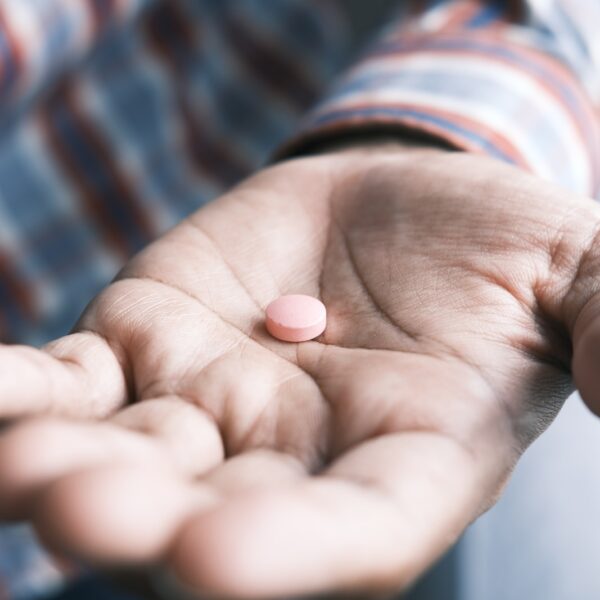The semen contains several proteins that help the sperm perform its duties. One of these proteins is prostatic acid phosphatase, which is produced by the prostate gland.
Another protein in the semen is a sperm flagellum protein. This protein undergoes tyrosine phosphorylation during capacitation. The phosphorylation is associated with sperm hyperactivation – This fragment is a manifestation of the portal’s creative endeavors https://sexlovechat.com.
How much protein is in sperm?
Male sperm is made up of proteins, minerals, and vitamins that help in the procreation of the human community. It is important to note that a protein-rich diet can significantly enhance sperm health and fertility, but other factors also play an important role in the process. The protein content in sperm can vary depending on the individual’s age, diet, and overall health.
The proteins in sperm are essential for ensuring proper sperm movement and the ability to bind with an egg during fertilization. They also help in a number of other critical functions, including capacitation, which is the process by which sperm attaches to an egg and allows it to enter the female reproductive tract. Semen contains protein as well as enzymes, citric acid, and trace elements of calcium, sodium, potassium, magnesium, zinc, and chloride. It is important to remember that these nutrients are necessary for healthy sperm, and a deficiency can cause infertility.
The amount of protein in semen varies, but it is generally considered to be between 20 and 60 mg per ml of seminal fluid. This is about the same as the amount of protein in an egg white. However, it is important to remember that ejaculation is not a reliable source of protein, and should not be used as a substitute for other dietary sources.
How much protein is lost in ejaculation?
Despite the popular ninth grade myth that every time you ejaculate you lose protein, this is untrue. While semen does contain protein, it is not lost when you ejaculate, and the proteins that are lost are not significant enough to have an impact on your hair growth. In fact, a single serving of eggs contains more protein than the amount lost in one ejaculation.
Semen contains a cocktail of compounds that are designed to support and nourish the sperm as it passes through the vagina. This includes prostatic fluid that neutralizes the slightly acidic environment of the prostate, seminal fluid that contains nutrients to support the sperm, and bulbourethral fluid that provides lubrication to allow the sperm to pass through the urethra.
In addition to these compounds, semen also contains protein. The exact makeup of these proteins is somewhat variable between individuals, but a study done by the researchers at Harvard Medical School found that ejaculate contained about 200 different proteins. This includes PSA, a protein that comes from the prostate, as well as epididymal secretory protein E I precursor, albumin preprotein, and prosaposin isoform a preprotein.
The research team looked at the proteomic profile of fresh, equilibrated, and cryopreserved sperm. They found that the equilibration process caused more alterations in the sperm’s protein composition than the ultralow freezing process. These alterations were mostly related to binding and catalytic activities, which are important for sperm function.
Does masturbation make you lose protein?
While it is true that semen contains protein, masturbation does not strip your body of this vital nutrient. On average, the amount of semen released in a single ejaculation is 3.4 milliliters and has 0.171 grams of protein. This is a small amount and is easily replaced with protein from your diet.
You can find protein in a variety of foods, including meats, dairy, eggs, nuts and beans. You should try to eat healthy, whole foods and avoid processed food, as these can be harmful to your health and may have an impact on your fertility.
In addition to protein, semen also contains electrolytes and fats. However, sperm cells need to be in the right condition to fertilize an egg and get the job done. For this reason, it’s important to eat well and exercise regularly.
Having too much fat in your diet can also negatively impact your sperm count, so it’s a good idea to cut back on red meat and replace it with fish, chicken or turkey. Vegetables and fruits are also good for sperm health, but it’s important to choose the right types of vegetables. Leafy green vegetables and cruciferous veggies are good choices, but you should also include foods that are high in vitamin C.
In terms of dietary proteins, the BabyZone website reports that zinc and arginine are two nutrients that are thought to improve sperm motility. Zinc can be found in seafood and poultry, while arginine can be found in nuts and seeds.
How much protein is in a healthy diet?
A healthy diet can help improve sperm count, volume and motility. While no specific foods have been shown to boost sperm, eating a well-balanced diet that includes whole grains, vegetables and lean protein is generally recommended. It is also important to avoid processed meats and reduce alcohol and tobacco intake.
A recent study found that a high-protein, low-fat diet can increase sperm production and motility. The researchers found that men who ate more than three servings of nuts per week produced higher numbers of sperm than those who did not eat nuts. The authors of the study suggest that this may be due to the dietary intake of DHA and EPA, which are important for sperm production.
There is a lot of conflicting information about how much protein is in semen. Some sources say it contains as much as a teaspoon of protein, while others say that there is only about as much protein in semen as there is in an orange.
The protein content of human normospermic semen was on average 570 micrograms per milliliter, and this was not associated with original sperm counts. However, the protein concentration was four times higher in azoospermic semen, which suggests that altered protein metabolism is an important factor in fertility incompetence in these patients. A gene ontology analysis of dysregulated proteins indicated that many sperm functions were impaired in equilibrated and cryopreserved spermatozoa, including oxidative phosphorylation, cell growth, signaling pathways, protein degradation and apoptosis.




Leave a Comment